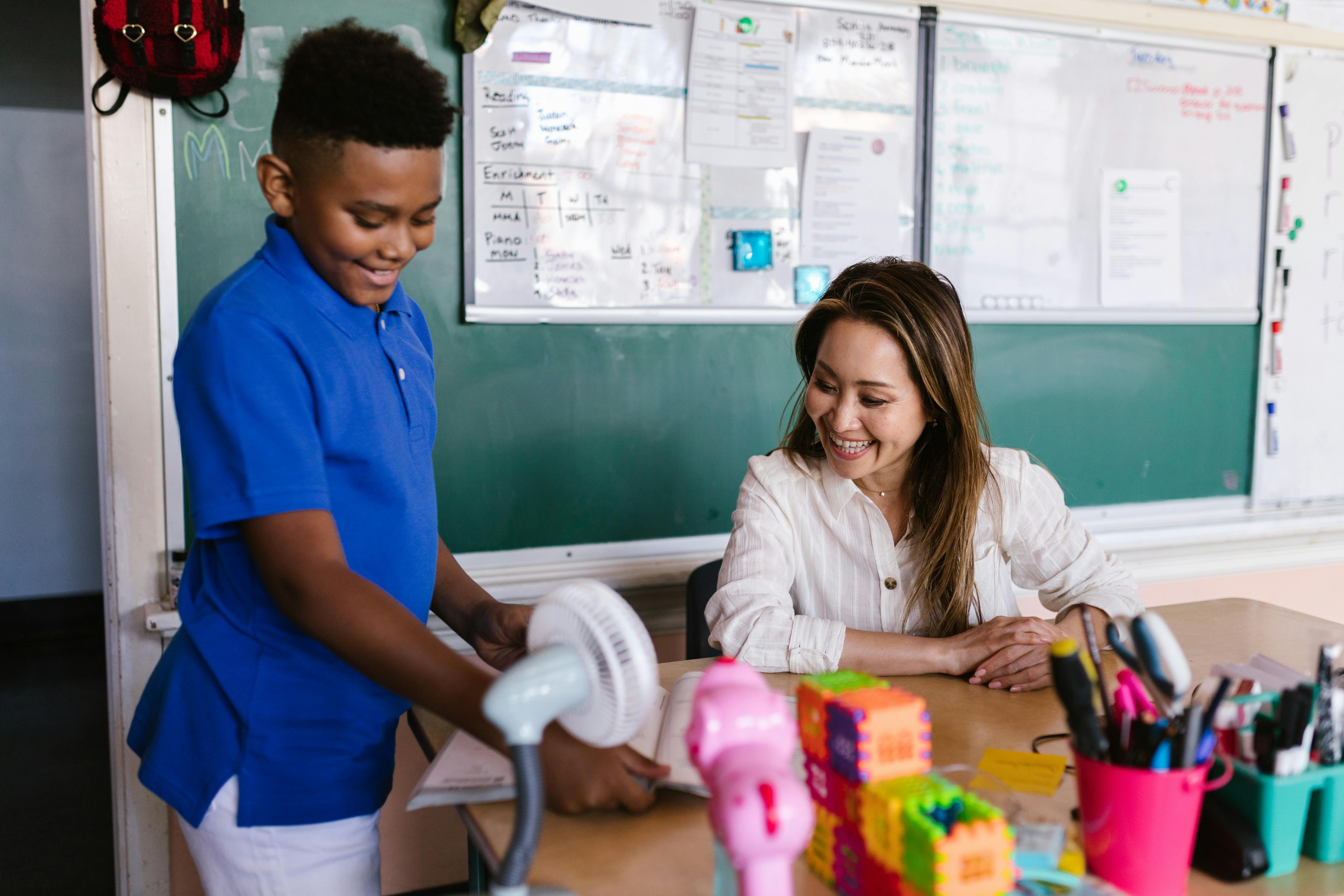Mark Solomons - creator of Welbee, the online evaluation and staff wellbeing improvement tool, six times winner in the ERA Awards and GESS Judges Commendation Award, author of ‘What Makes Teachers Unhappy and What Can You Do About It?’, acclaimed speaker and wellbeing expert with over 15 years’ experience developing leadership and culture in education, discusses building resilience.
As I write this article the Wimbledon Championship – the oldest tennis tournament in the world – has just finished. This year the players reaching the latter stages continue to not only demonstrate their incredible expertise, but in many cases, the resilience necessary to win, and ‘wow’ the fans.
Since taking a step back from the professional game, tennis superstar, Roger Federer, eight times Wimbledon winner and all-time record-holder, continues to attract media attention. Recently, I came across his thought-provoking Commencement Address at Dartmouth College in the US – he shared some quick tips on tennis technique – and plenty more to inspire those graduating, about the importance of personal drive and attitude.
Federer explained his annoyance when commentators described the ease with which he won those championships and others around the world, ‘Effortless is a myth’ he explained, ‘The truth is, I had to work very hard to make it look easy.’
He revealed he won 80% of the 1,526 singles matches played, then asked the audience what percentage of points they thought he had gained.
Turns out it was just 54%!
He went on to say, ‘When you’re playing a point, it is the most important thing in the world. But when it’s behind you, it’s behind you. This mindset is crucial, because it frees you to fully commit to the next point, and the next one after that, with intensity, clarity and focus’.
Federer continued, ’But negative energy is wasted energy. You want to become a master at overcoming hard moments.’
The truth is, whatever game you play in life, sometimes you’re going to face adversity and lose. A point, a match, a season, a job – the same in education, where each term can be a real roller coaster with many ups and downs - and it’s natural to doubt yourself.
There are lessons for all of us and in particular the importance of being resilient and able to overcome the hard moments. Resilience is having the capacity to withstand or quickly recover from difficulties. It means acknowledging the situation, not dwelling on disappointments, learning from mistakes and challenges, and moving forward.
Perfectionism is one trait that many educators have, which can challenge their resilience. Characterised by black-and-white thinking – it’s the tendency to see all or nothing, and it’s easy to become discouraged.
If a lesson, meeting or other plan does not go as expected, there is little point in dwelling on the negative, in the same way as Roger Federer ignored the last point. Instead focus on what would have made it better and bring this to the next point you play.
Adopt a growth mindset, focus on improving and embracing failures as a chance to learn something new, meaning there can be development. Next time, you’ll be more prepared, do a better job, or at the very least not be down about it. This isn’t new to educators, and it is perhaps a good time to revisit in the current environment.
Professor Carol Dweck, Stanford University, identifies 5 attributes of teachers with a growth mindset: they take responsibility for improving their practice; see setbacks and feedback as an opportunity to learn and grow their skills; actively seek learning opportunities and new challenges; have positive and high expectations of their students and use growth mindset language professionally and personally.
Being compassionate is important. Teachers and leaders naturally display compassion to their students and colleagues, and yet can find it difficult to practise self-compassion. According to Kristen Neff, Science of People, self-compassion is made up of three components: self-kindness, common humanity, and mindfulness.
• Self-kindness means being gentle to ourselves. Changing negative thoughts – worries, judgemental comments and complaints - into positive ones, by practicing positive self-talk; caring for our bodies and minds with healthy food, exercise and enjoyable activities; resisting being people pleasers; and giving hugs to those you love.
• Common humanity is recognising that all people suffer, struggle, fail, and feel separated or alone sometimes.
• Mindfulness is being in the present moment. When you’re struggling, focusing in on the here and now can provide positive energy, and help you escape from negative thoughts. Resilience can also be challenged by organisational culture, and the actions of those around us, especially during times of change. So, what steps might you take?
1. Prioritise self-care – this includes physical exercise, hobbies, reading, or simply taking time to relax. Ensure time for yourself to reduce stress and improve work-life balance; add it to your calendar to make it happen.
2. Develop your support network - relationships with colleagues, friends and family, provide emotional support, alternative perspectives, and practical advice during challenging times.
3. Set realistic goals and boundaries - establish clear boundaries between work and personal life, to prevent overworking and allow time to recharge.
4. Engage with professional development - stay updated with the latest research and strategies. Continuous learning enhances confidence and competence, equipping you to handle challenges.
5. Stay positive and practice gratitude - keeping a gratitude journal or reflecting on things you're thankful for, improves your overall outlook and resilience.
6. Maintain a healthy lifestyle – eat, sleep, and stay hydrated. It is not always easy, and we know many in educators struggle with good sleep – yet addressing all of these, makes it easier to handle stress, and bounce back from setbacks.
7. Foster a positive work environment - support colleagues and contribute to a positive and collaborative work environment – significantly impacts overall job satisfaction.
8. Embrace flexibility and adaptability - in the ever-changing education landscape, being flexible and adaptable is crucial. Embrace change as an opportunity for growth and remain open to new approaches and ideas.
9. Seek professional help when needed – if you're struggling with stress, anxiety, or other mental health issues, seek professional help.
Building resilience is hard work, it needs regular attention and practise. But by developing it, you will be more prepared and ready to face any challenges or stressful situations that come your way, remember Federer – ‘effortlessness is a myth’.
For more information and support on improving personal wellbeing please contact welbee.co.uk.
- Ends-


